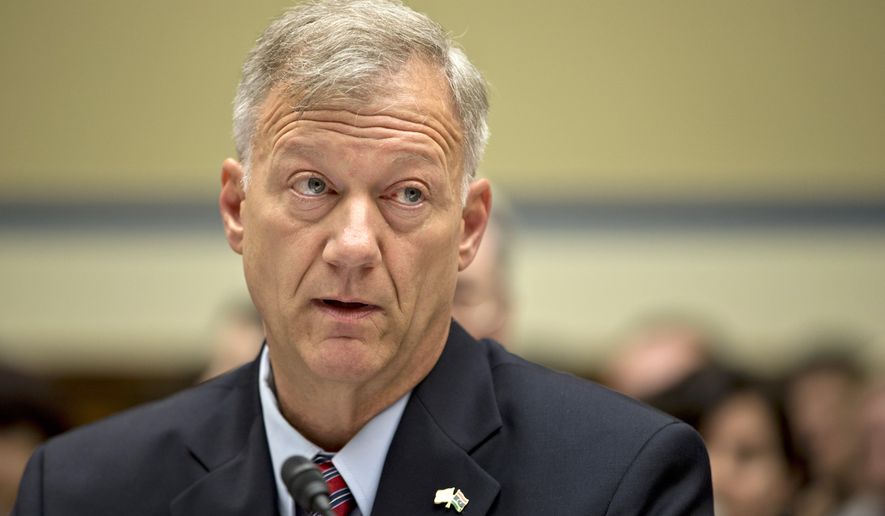When Lt. Col. Andrew Wood, a Green Beret, first told Congress that security at the Benghazi consulate had been woefully inadequate before the Sept. 11, 2012, attack there, top State Department officials working for Hillary Rodham Clinton strongly disputed his assessment.
They insisted under oath that State “had the correct number of assets in Benghazi at the time of 9/11,” and that the only reason the compound was overrun was because an “unprecedented” attack had occurred.
Three years later, Col. Wood’s assessment has stood the test of time, as several outside probes have concluded the security at Benghazi was inadequate for the rising threat level it faced before Ambassador J. Christopher Stevens and three other Americans died in a terrorist attack.
The colonel’s account was further corroborated in newly surfaced memos disclosed Monday by The Washington Times showing State officials working in Benghazi shared his fears, trying to scramble to arrange Libyan security when Washington wouldn’t offer additional help and dealing with other red flags involving anxious landlords and private security guards worried about coming to work.
Col. Wood, who led a U.S. security assessment team in Libya in 2012, said he takes little satisfaction in having been right.
“The gulf between the real world, when you are working in the danger zone, and what goes on D.C. is insane,” he said in an interview Monday with the Times. “They don’t listen to people on the ground. It’s just a broken system.”
Col. Wood, a special forces reservist and security specialist deployed to Libya from Utah, tried aggressively to get more security assets sent to Libya and to Benghazi specifically after his own risk assessment identified weaknesses and increasing threats. But each time the word came back to him that Washington had turned down more help.
He said officials in Washington believed security could be “normalized” by creating an arrangement with the Libyan government like those that most other countries provided to U.S. diplomatic outposts.
The problem, he said, was that Libya had just overthrown Moammar Gadhafi and the new transitional government was still struggling to establish control over the country and didn’t have the ability to help the U.S.
“It was a horrible situation,” he said. “State Department just had this attitude, it came back through the regional security officer, that everything just needed to be normalized and we’d be OK,” he recalled. “But the fact was there was no country to normalize with. It was like the Americans right after the Revolution, there was no government apparatus to speak of.”
He said multiple requests to the Clinton State Department in Washington for additional security were rejected.
“They had their minds made up. They were not going to provide additional security there. Period,” he recalled.
Col. Wood said after a convoy of British diplomats were attacked in Benghazi in the summer 2012, he took his concerns directly to Stevens.
“I told this to Mr. Stevens himself, in front of a big meeting. I said ’You are going to get attacked and you are going to get attacked in Benghazi,’” he said. “I said there were only three things we could do: change your security posture, change your location or abandon entirely.”
“He was very good in the meeting. He didn’t overreact. He was one of the best guys I ever worked with. He said he would take note of the concerns and after that everyone was really worried. But he didn’t want to display it.”
When the British and the American Red Cross abruptly abandoned Benghazi, Stevens came back to the Green Beret to inquire further about options.
“What you are saying, how serious is this?” Col. Wood said Stevens asked. He said he later learned the ambassador made a request for more money or resources to protect State assets throughout Libya.
In the end, those resources never came.
• John Solomon can be reached at jsolomon@washingtontimes.com.




Please read our comment policy before commenting.